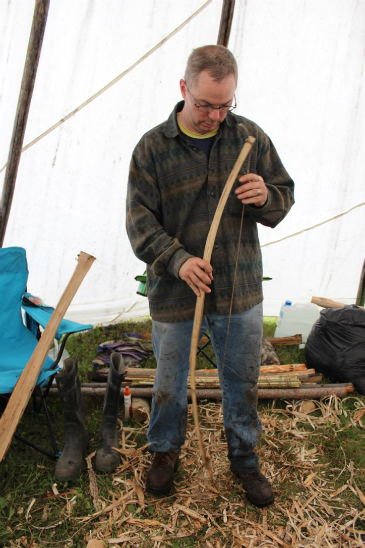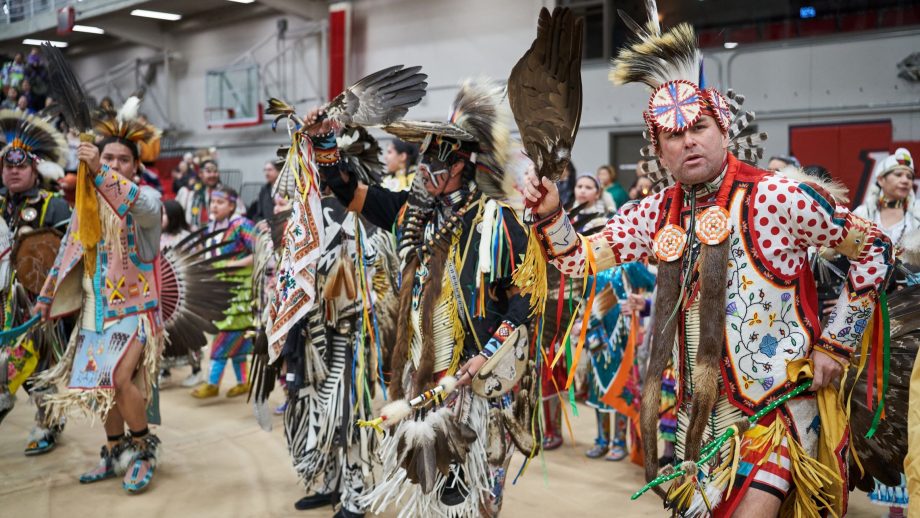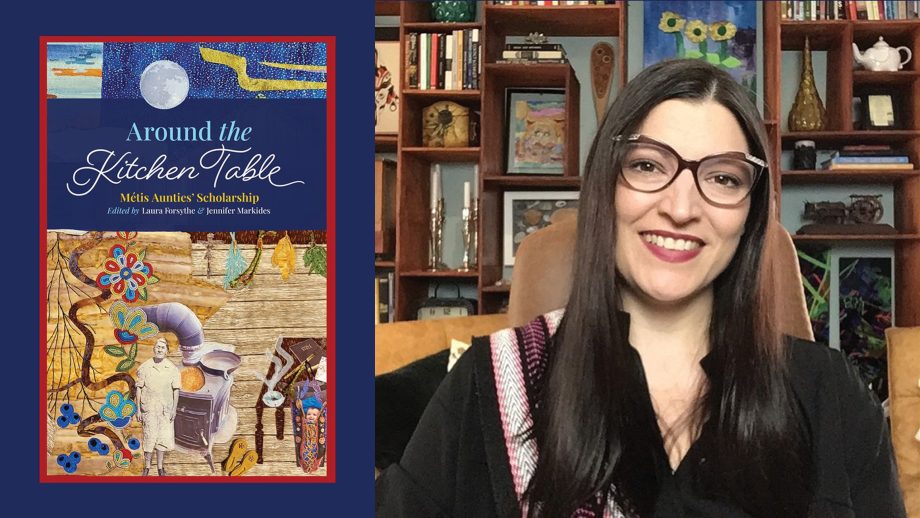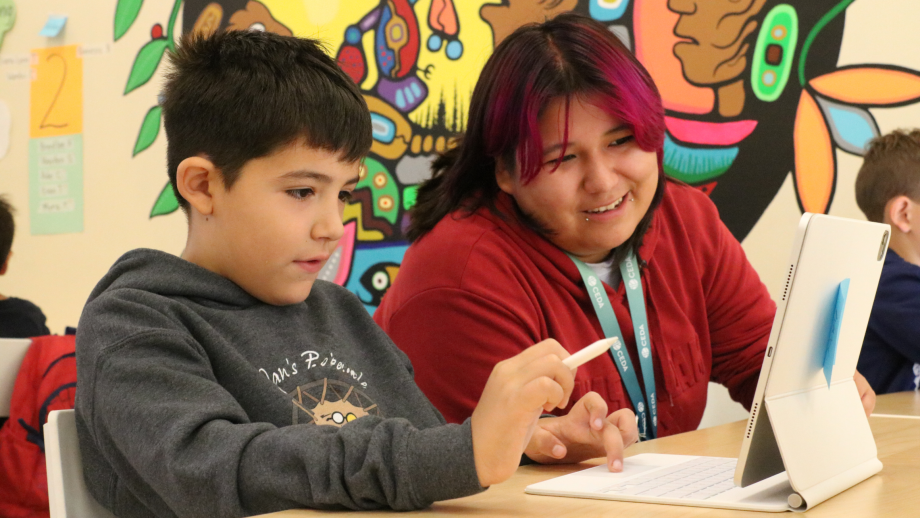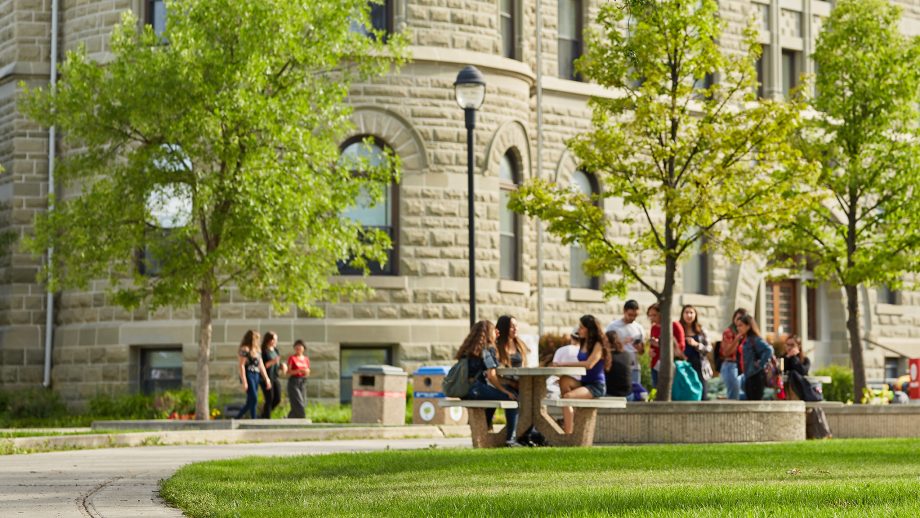Living in traditional tipis at the ANPO-Bison Ranch near Rossburn, Manitoba for five days was part of a history class at The University of Winnipeg that was so popular we are offering the class again this summer.
Last year, UWinnipeg students from across disciplines worked with Indigenous Elders from nearby First Nations communities to learn about bison culture and traditional technologies, such as tanning hides and manufacturing archery equipment.
The class was based on oral history, archaeology, and material culture, with a focus on the role of material culture in the history of Indigenous peoples of the northern plains. Students were encouraged to explore various ways in which Indigenous and European technologies complemented each other. The proprietors of the ANPO-Bison Ranch, Sabrina and Tom Schlup, of Anishinaabe and Swiss background, hosted and instructed the students alongside other Elders and experts.
This year’s class runs from July 3 to July 14, 2017. There is one week in class and another on a bison ranch. This is a three-credit hour 3000 or 4000 level Spring course. For further information contact please Dr. R. Bohr (r.bohr@uwinnipeg.ca) or phone (204.786.9007).
“The students were still able to experience the local bison herd up close, participate in a Dakota/Saulteaux sweat lodge, and work on their hide tanning and bow making projects,” shared Dr. Roland Bohr, professor of history and director of the Centre for Rupert’s Land Studies.
This course is one of many experiential learning courses offered at UWinnipeg. Other courses this past year included Shoal Lake to Winnipeg: Practicing Land-Based Reconciliation and What happens in Vegas won’t stay in Vegas.
Student Experiences
“Overall, the trip has given me a valuable perspective on life and on how I view society, from past centuries to the present. I knew making the trip out onto the ranch would definitely be a challenge for me, both physically and emotionally. Having grown up in a remote northern community, I also felt a strong sense of belonging, being on the land. The skills and traits we used at the Anpo-Bison Ranch were challenging, even when using modern metal tools, as opposed to what our past ancestors had to work with.” – Effie Chartrand, Teacher, Red River College/University of Winnipeg Aboriginal Language Joint Program.
“This field course offered me a wealth of opportunities to experience Indigenous material culture that I would never have been able to experience otherwise. I clearly saw a pattern with everything that I learned. How difficult and how much skill was required of Indigenous peoples in order to survive on the plains for the thousands of years. I learned a variety of skills and grew a profound appreciation for Indigenous peoples, as well as their material cultures and traditions. I now have an understanding and experience with aspects of Indigenous cultures and practices that I am confident will be useful in a variety of ways in my life to come.” – Francine Laurin, Business and Administration, double minor (History and Politics) and French Metis.
“It was a great experience enrolling in this experiential course, learning new skills and meeting new people. This opportunity does not come often, especially if one lives a fast-paced life in the city. These skills and material cultures are infrequently practiced since we have to focus on attending our post-secondary classes, work to afford our rent, run from A to B on time for different reasons and get caught up with westernized living. This opportunity opened my eyes and mind and provided me with a visualization of what can be done next, how I can get my community more involved with these significant traditional skills and revitalize the culture so close to home, as opposed to learning three and a half hours away. Miigwetch (thank you in Ojibwe) Professor Bohr for introducing us to bow making and for giving us an opportunity to participate in different projects in such a short period of time. It is something I will never forget and will always be grateful.” – Maureen Twovoice, Indigenous Governance and Waywayseecappo First Nation member.
All photos are courtesy of Virginia Barter.
*** This story was originally published on Monday, August 29, 2016

